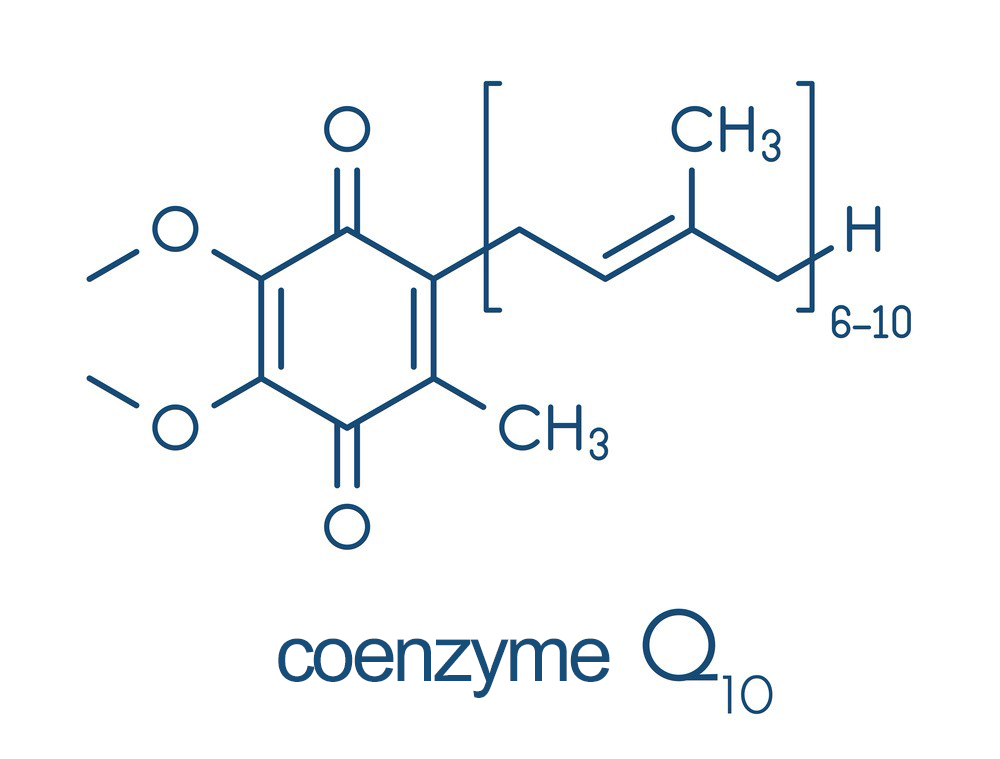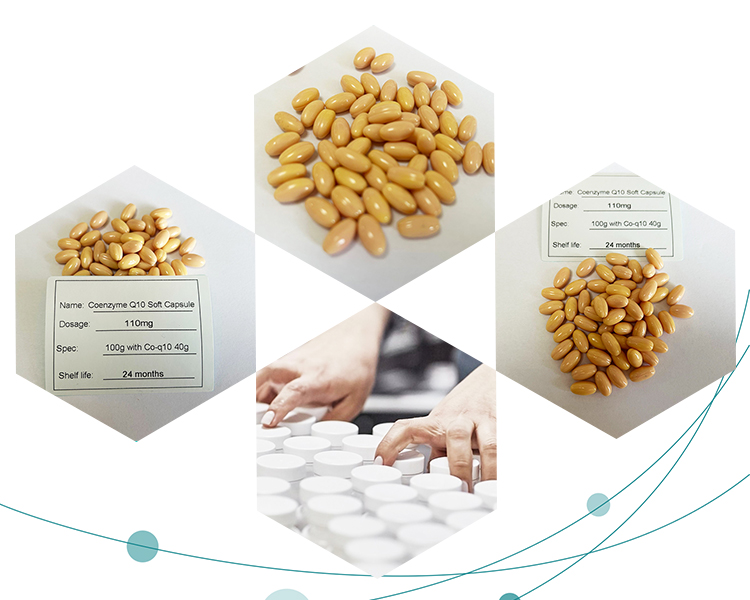Coenzyme Q10 capsules are dietary supplements that contain Coenzyme Q10 in a concentrated form. Coenzyme Q10 (CoQ10), also known as ubiquinone, is a vitamin-like compound found naturally in the body. It plays a crucial role in cellular energy production and is also a powerful antioxidant. CoQ10 is commonly available in supplement form, often as capsules. Let’s delve into its chemical structure, physical properties, and some relevant information:
Chemical Structure of Coenzyme Q10 Capsules:
Coenzyme Q10 has the chemical formula C59H90O4.
Its molecular weight is approximately 863.36 g/mol.
Coenzyme Q10 is composed of a benzoquinone head group attached to a hydrophobic isoprene tail. It has 10 isoprene units in its side chain, hence the name Coenzyme Q10.
The chemical structure resembles that of vitamin K and vitamin E.

Physical Properties of Coenzyme Q10 Capsules:
Appearance: Coenzyme Q10 typically appears as a yellow to orange crystalline powder.
Solubility: It is sparingly soluble in water but soluble in organic solvents like ethanol, chloroform, and ether.
Melting Point: Coenzyme Q10 has a melting point of approximately 48-52°C.
Stability: Coenzyme Q10 is sensitive to light, air, and heat. It should be stored in a cool, dark, and dry place to maintain its stability.
Function and Uses of Coenzyme Q10 Capsules:
Energy Production: Coenzyme Q10 plays a vital role in the mitochondrial electron transport chain, where it helps generate adenosine triphosphate (ATP), the primary energy currency of cells.
Antioxidant: It acts as a potent antioxidant, scavenging free radicals and protecting cells from oxidative damage.
Health Supplements: Coenzyme Q10 supplements are commonly used to support heart health, improve energy levels, and alleviate conditions associated with oxidative stress.
Cosmetic Applications: Due to its antioxidant properties, Coenzyme Q10 is also used in skincare products to reduce the signs of aging and protect the skin from environmental damage.
Dosage of Coenzyme Q10 Capsules:
The recommended dosage of Coenzyme Q10 supplements can vary depending on factors such as age, health status, and specific health conditions.
Typical doses range from 100 to 300 milligrams per day, but higher doses may be used under medical supervision for certain conditions.

Safety and Precautions of Coenzyme Q10 Capsules:
Coenzyme Q10 is generally considered safe for most people when taken orally in appropriate doses.
Side effects are rare but may include mild gastrointestinal discomfort.
Individuals taking medications, particularly those for heart disease or blood thinners, should consult their healthcare provider before taking Coenzyme Q10 supplements to avoid potential interactions.
It’s essential to consult with a healthcare professional before starting any new supplement regimen, including Coenzyme Q10, especially if you have any underlying health conditions or are taking medications.
